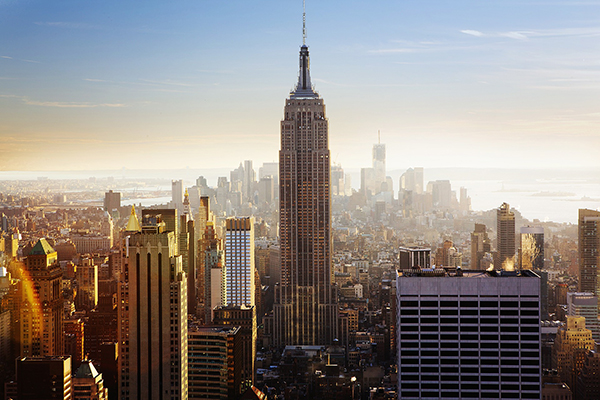How taxes raise the cost of beer, petrol, tampons and holidays

How much would everyday purchases cost if we didn't pay tax?
Most of us tend to think about tax as something that comes out of our salary, yet taxes are everywhere and substantially raises the cost of everyday purchases.
And it's not just, which adds 20% to the price, that's entirely to blame.
Government duties mean that, in some cases, you’ll end up paying almost double what the seller would otherwise have charged.
Here we look at what everyday purchases would have cost if you didn’t pay VAT or duties, although we’re not accounting for Corporation Tax or other taxes.
Before we jump in, we should stress that taxes are obviously a vital source of income. The aim of this article is not to advocate a tax-free society, but rather to illustrate the surprising amount of tax we all pay on common goods and services.
20 ways to pay less tax: cut your Income Tax, Council Tax, and Inheritance Tax
Beer: £2.26 a pint
With tax: £3.50 in the UK
Fancy a return to those days when £3 a pint was too much?
Your pint is subject to two taxes: VAT and Beer Duty.
The former adds 20% to the cost; the latter adds just under 11p for every 1% of alcohol a standard beer has. So, for a pint of 5% beer that’s a cost of 54p.
Tax makes beer pricier, but don’t forget about costs such as shipping, business rates and rents for pubs. Rents in particularly help explain why a pint in London, at £5.20, is so much more expensive than the rest of the UK (£3.50).
Petrol: 42p a litre
With tax: £1.25/litre in November
You’re not imagining it – tax really does account for two-thirds of the price of petrol.
Consider yourself lucky: back in the 1990s, tax made up between 70% and 80% of the price at the pump, according to the AA. In the Autumn Budget, Theresa May froze fuel duty for the ninth consecutive year, meaning it's effectively fallen in real terms.
Fuel duty is a flat 57.95p/litre for petrol and diesel and you’ll also need to pay VAT on top of that.
Earn cashback when you fill up with one of these credit cards

Cigarettes: £6.29 for a 20-pack
With tax: £10.40
The taxman hasn’t been so kind to smokers, with Tobacco Duties to rise again next year.
At present, the duty on cigarettes is 16.5% of the retail price plus £4.57 on a packet of 20 – so around £6.29 - and then you’ll need to pay VAT.
It’s often assumed that loose tobacco is treated more generously and there’s some truth in that: the duty on a 30g pack is £7.04, from which you could get more than 20 cigarettes (although you’d have to pay for papers, filters etc).
Compare travel insurance quotes for your next holiday
Tampons: 20-pack for £1.81
With tax: £1.90
A reduced rate of 5% VAT is charged on tampons. Nevertheless, this ‘tampon tax’ remains hugely controversial as other health-related products are VAT exempt.
After a public outcry in 2015, the Government announced that the tax raised from tampons would be donated to women’s health and support charities. Some retailers also cut their prices by 5% to shoulder the VAT cost.
The Government have promised to remove the tax when EU rules change. In October, the European Parliament voted to allow governments to change VAT rates, although the new rules are not yet in force.
Flights: £87 one-way to New York
With tax: £165
HMRC’s power even extends to the skies. When airlines say you’ll only need to pay taxes and duties, don’t get your hopes up.
Air Passenger Duty for economy seats on a long-haul flight is a whopping £78. Bizarrely, where you sit could end up costing you more: the Duty rises to £156 if your seat is more than 40 inches from the row in front (although you don’t pay VAT on flights).
Luckily, there’s a much-reduced rate of £13 for short haul flights of less than 2000 miles, which covers Europe. It’s worth factoring in next time you book a holiday.


Car insurance: comprehensive policy £669
With tax: £760
As if car insurance wasn’t expensive or painful enough already, the Government charges an Insurance Premium Tax (IPT).
This works out as 12% for most types of insurance, with travel insurance and car insurance on hired vehicles at 20%. Life insurance and income protection insurance is exempt.
You don’t pay VAT on insurance.
24 ways to cut your car insurance premiums
Electronic books: Stephen Hawking's Brief Answers to the Big Questions, £6.39
With tax: £7.99
In many cases, taxes don’t keep up with the times, as seen in demands to tax online retailers more in order to protect high street shops.
However, in one case consumers are already paying more for online products.
Whilst printed books are VAT exempt, e-books such as Kindle Books are subject to 20% VAT, despite being essentially the same product.
Sign up for a free trial of Amazon Prime

Millionaire’s shortcake: 20-pack for £2
With tax: £2
We’ve included this example because it shows what happens when tax descends into farce.
At present, shortbread topped with caramel and chocolate is VAT exempt.
But if you remove the caramel – leaving “shortbread biscuits partly or wholly chocolate-covered”, you get charged tax.
That’s because the chocolate-covered shortbread is subject to 20% VAT, as a confectionary, whereas millionaire’s shortcake is exempt, as a bakery product.
Confused? So are we. And of course, it doesn’t guarantee millionaire’s shortbread will actually be cheaper in a shop.
If you want to better navigate the minefield that is our tax system, have a read of this guide, which shows you 20 ways to legally cut your tax bill.
Sources: Campaign for Real Ale / RAC / My Supermarket / Confused.com / Amazon
Comments
Be the first to comment
Do you want to comment on this article? You need to be signed in for this feature